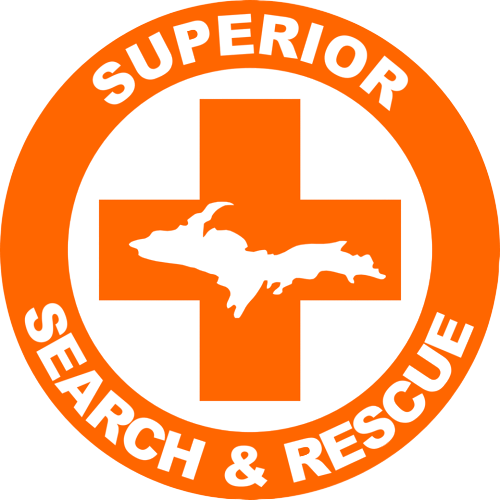24/48hr Ready Packs
-
There is no shortage of packs to choose from, but some key factors should be considered when deciding what to take with you into the field. Size, material, and stitching, could be the most important things when it comes to pack durability.
A 24hr pack should strike a balance between weight and comfort in such a way that it can be worn for long durations, yet contain the essentials needed during SAR operations. Something between 45 - 60 litters is ideal for a 24hr search pack, but could even be smaller depending on the wearer. Whereas 73-90 litters is better for a 48hr overnight pack to accommodate changes of clothing and enough room for additional gear storage.
The material should be thick enough to withstand the abuse of hiking through dense vegetation or potential falls and drops. Seems and straps with higher quality stitching will prevent pieces from loosening or falling off during activity.
Ultimately, unless it is issued, choosing a pack is a highly personal choice, and there is no entirely perfect way to choose one. The best way to find out if a pack is right for you is to wear it fully loaded and engage in demanding activity, such as a hike through the brush. If it feels uncomfortable, or does not hold gear the way you would prefer, return or exchange it until one is found that holds up to your standard.
-
These are only suggestions of clothing items that may be useful additions, and are subject to change depending on the season:
Hats: wool, polypro, capilene balaclava, baseball cap, booney cap, rain hat.
Parka: Gore-Tex, anorak, down, pile.
Shirt: High-vis shirt, t-shirt, wool outer shirt, pile sweater or down vest.
Handwear: fingerless pile, Polypro liners, Dachsteins, overmits.
Pants: pile or wool pants, Thermax or Capilene underwear.
Socks: Polypro liner, midweight Polypro, Capilene, wool, vapor barrier for winter or plastic mountaineering boots, overboot liners.
Footwear: Mountaineering boots or lightweight hiking boots.
Rainwear: gaiters, rain jacket, rain/wind pants.
-
Electronic: radio (provided by IC), extra battery, radio harness, long range antenna, remote microphone, cell phone, tablet, GPS device.
Topographic Maps w/ Protractor
Compass
Pencil (bring several)
Notebook
Signal Mirror
Strobe
Chemical Light
Whistle
Smoke Signal
Flares
-
• Gore-Tex bivy sack
• Foam sleeping pad
• Lightweight (2lb or less) sleeping bag
• Lightweight ground sheet
-
• Headlamp
• Large plastic trash bag
• 100ft 550 cord
• Duct/Gorilla Tape
• Watch
• Binoculars
• Folding saw
-
• Sunglasses
• Toilet Paper or Wet Wipes
• Bandana
• Sunscreen
• Insect Repellent
• Mosquito Net (head)
• Lip Balm
• Waterproof matches and disposable lighter
• Knife (Swiss-Army, Gerber or Leatherman)
• Back up power bank and charging cables
-
• Personal EMS kit
- Gloves/Eye Protection
- CPR Pocket Mask
- Tourniquet
- Roller Gauze
- 4x4 Gauze Pads
- Medical Tape
- Triangular Bandages
- SAM Splint
- Elastic Bandage
- Steri-strips
- Hypothermia Blanket
- Trauma Shears
-
Food/Hydration Kit
• Granola or energy bars
• Food for two days (no cooking required)
• Stove for winter use/base camp
• Water bottles (2 litters minimum)
• Water filtration device
• Electrolyte replacement mix
• Cup
-
Snow Gear
• Snow shovel
• Snowshoes
• Avalanche probe
• Silicone-soaked cloth (kept in ziplock bag)
• Hypothermia blanket(s)
